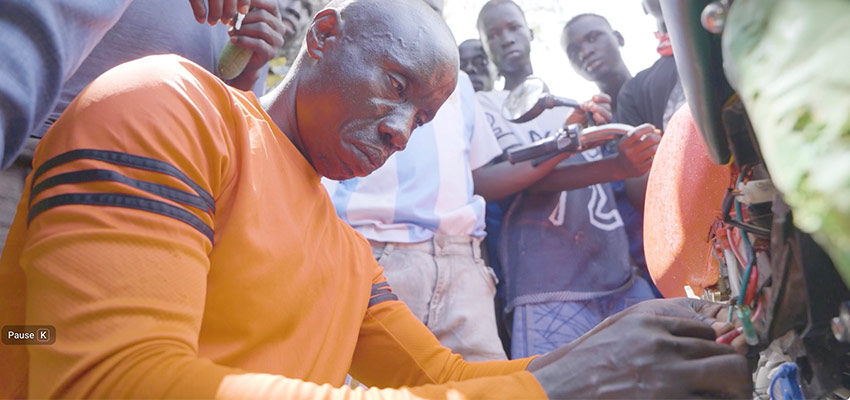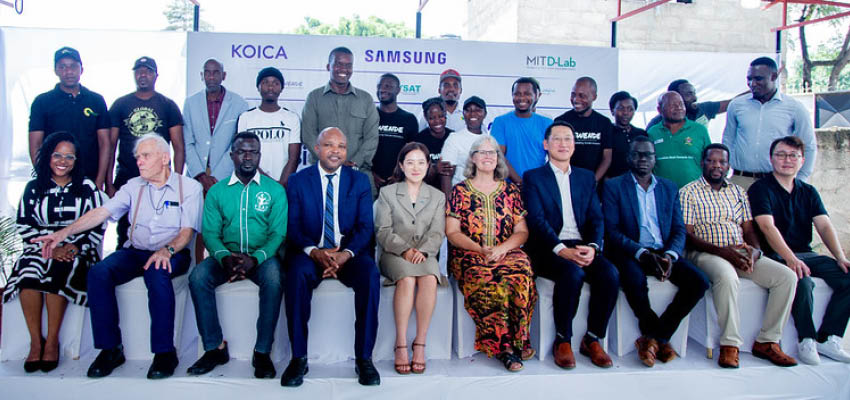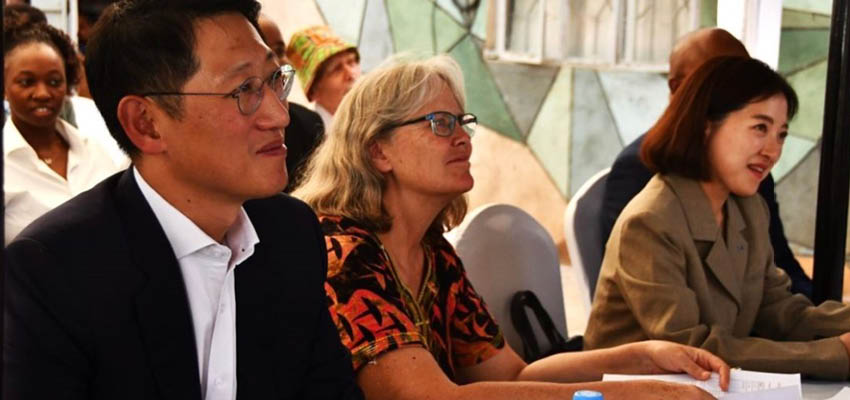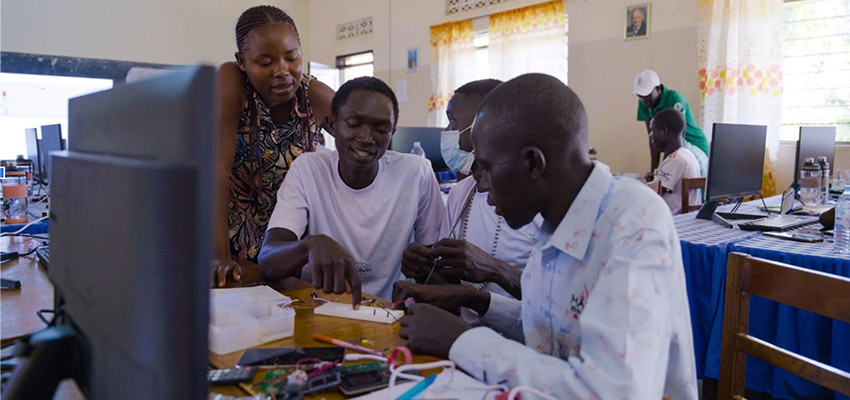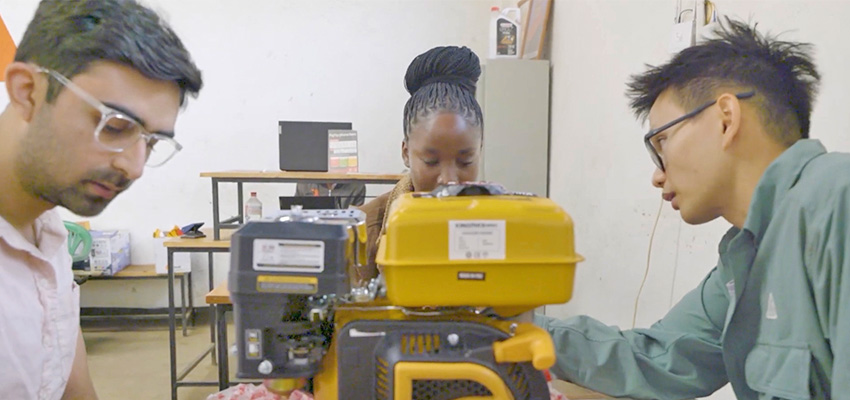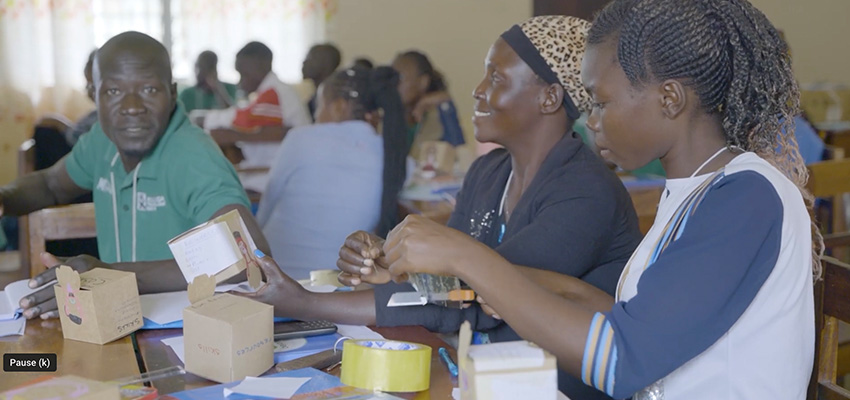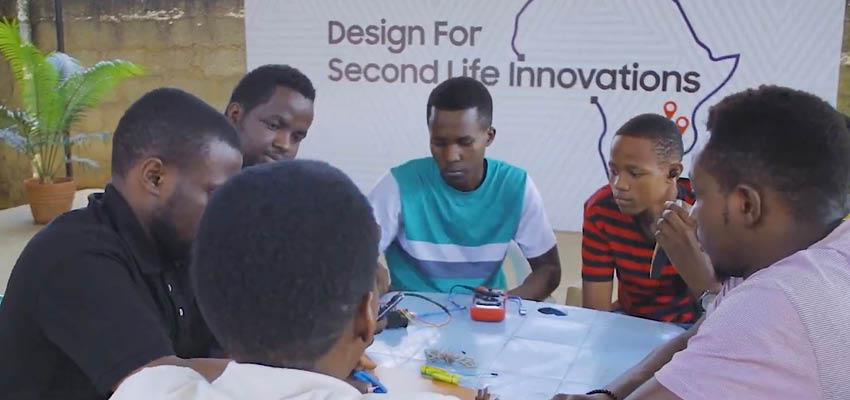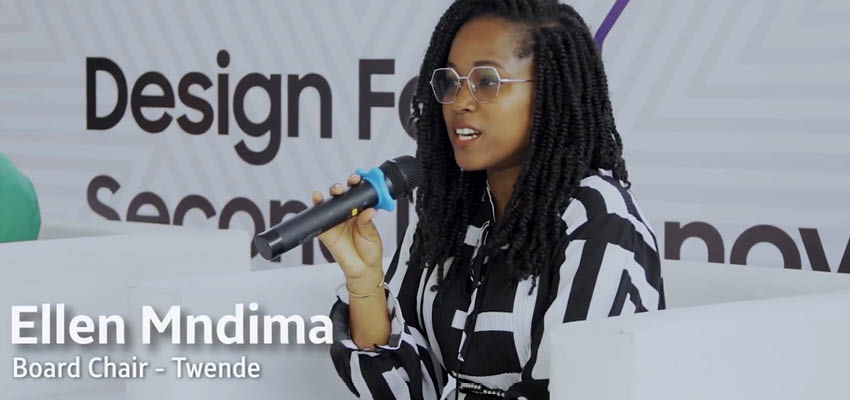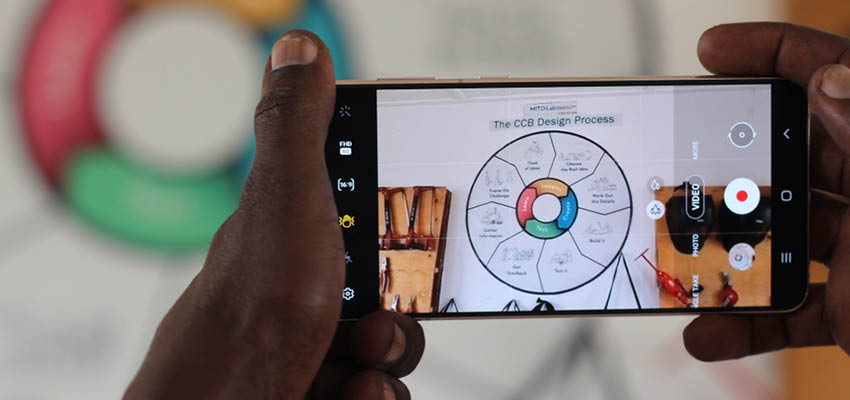
Upcycling electronic devices to create a transformative impact in low-income communities through MIT D-Lab's Creative Capacity Building program in Uganda, Tanzania, and South Sudan.
Launched in the fall of 2023 with support from the Korea International Cooperation Agency (KOICA), this multifaceted project brings together MIT students and longstanding MIT D-Lab partners in East Africa to upcycle electronic devices donated by Samsung – principally mobile phones – for innovative use in Uganda and Tanzania.
The central aim of the program is to use participatory design, specifically D-Lab's suite of Creative Capacity Building trainings, to strengthen local innovation ecosystems in Uganda and Tanzania. Through this project, MIT D-Lab staff, students, and partners will work together to:
- design alternative uses for electronic devices that address challenges face by communities,
- and transform those technologies into income-generating opportunities that enhance agency, resiliency, and self-determination
Community partners
Central to this project are D-Lab community partners Twende (Tanzania), Kulika Uganda, and Youth Social Advocacy Team (Uganda, South Sudan).
Twende is a Tanzanian NGO based in Arusha that focuses on the design of innovative technologies to solve community challenges and improve education. A close collaborator of D-Lab for more than fifteen years, they run a local innovation ecosystem out of their center in Arusha, with a satellite center in Kilimanjaro.
Kulika Uganda is a Ugandan NGO working in all four regions of Uganda on community innovation, including training small farmers on agricultural techniques and providing basic education. Their headquarters are in Kampala, and they have a satellite office in Arua with close access to the Rhino and Imvepi refugee settlements. A long-time partner of D-Lab, they currently run local innovation centers in the Rhino and Imvepi settlements.
Youth Social Advocacy Team (YSAT) is a refugee-led organization focused on youth, gender, education, and community organization based in the Rhino refugee settlement in Uganda, with chapters in several refugee camps in Uganda and a program in South Sudan. They have worked with D-Lab for several years and work together with Kulika at the local innovation centers in Rhino and Imvepi.
MIT students, D-Lab classes
In conjunction with the project, D-Lab has developed two MIT classes. In the spring 2024 class Mobiles for Development, students will explore possible uses of repurposed electronic devices in several sectors of development, including agriculture, education, health, and energy, to have a positive impact on people living in low-income communities. Working in teams, students will apply principles of participatory and inclusive design to specific projects that they develop in collaboration with community innovators in refugee camps in Northern Uganda and rural areas of Tanzania.
Additionally, MIT students will engage in related research as part of MIT's Undergraduate Research Opportunities Program or UROP.
Project leads
MIT D-Lab
Principal Investigator: Libby McDonald, MIT D-Lab Associate Director for Practice
Principal Investigator: Amy Smith, MIT D-Lab Founding Director
Project Manager: Heewon Lee, MIT D-Lab Research Associate
Kulika Uganda
Magdaline Amujal, Executive Director
Twende
John Nzira, Executive Director
YSAT
Jon Jal Dak, Executive Director


